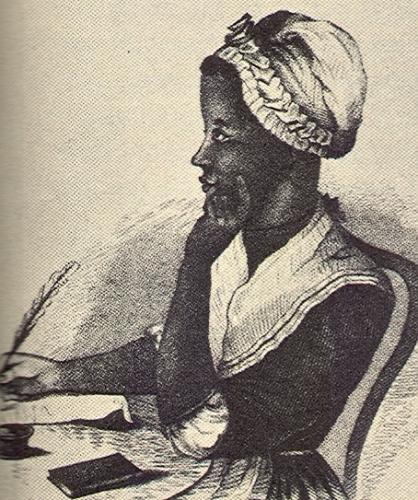 |
LITR 4231 Early American
Literature Sample Research Posts 2014 (research post assignment) Research Post 2 |
 |
Isabella Nunez
A Texas Captivity Narrative
In my first research post I chose to research the captivity narrative in regards
to gender with my focus being on that of John Smith. When first introduced to
the captivity narrative, the story of Cynthia Ann Parker was briefly mentioned
in class. I had initially chosen to research and write about her for my second
research post; however during my research I uncovered information about her
cousin Rachel Plummer, who was also captured by the Comanche Indians during what
later came to be known as the “Fort Parker Massacre”. Rachel Plummer’s
narrative hit close to home for many reasons, so instead I turned my attention
to her.
Rachel Plummer was captured at the young age of seventeen, while she was also
three months pregnant with her second child. She was kept in captivity for the
following 21 months and what ensued is a heart-wrenching horror story. In
Rachel’s narrative she recounts as many details as possible about Comanche
culture and mindset. I find her narrative much more significant than that of
Cynthia Parker, since Cynthia was captured at the age of nine and it appears as
though she adapted and embraced the Comanche lifestyle as her own because of her
young age. Rachel, however, was only in captivity for 21 months and although she
gives a biased account of their lifestyle, she later finds somewhat of an
understanding and acceptance of it as well.
The most interesting detail of Rachel’s capture is that at one point, after
months of servitude and the horrifying death of her son, she is infuriated and
just snaps. She lashes out at both of the woman who had enslaved her to a point
where she nearly kills one of them. It is after this event that Rachel realizes
that the rest of the tribe respects her actions when initially she had expected
punishment or even death for her retaliation. She finds that it is her
bravery and
courage that had
earned their respect and subsequently she began being treated as an equal. It is
with heartbreak that she finds if she had realized this much sooner she would
have kept her son from death.
I found this event highly significant because it is through this epiphany of
understanding of their culture that Rachel is able to make strides regarding her
captivity. She ended up being released, or rather sold, almost a month later but
to finally be regarded as equal must have been highly rewarding for her.
This captivity narrative in particular hits so close to home because obviously
her age and gender, but also more literally because of its resonance in Texas.
Her accounts depict a part of Texas history that was never taught in 7th
grade Texas history classes. This captivity narrative gave me a deeper
understanding and appreciation for not only our Early American culture but the
Native American Culture as well.
Works Cited
Indian
captive reunited with husband. (n.d.). Texas State Historical Association
(TSHA). Retrieved May 4, 2014, from
http://www.tshaonline.org/day-by-day/31235
PLUMMER,
RACHEL PARKER. (n.d.). EXLEY, JO ELLA POWELL. Retrieved May 4, 2014, from
http://www.tshaonline.org/handbook/online/articles/fpl09
Rachel
Plummer. (2014, April 5). Wikipedia. Retrieved May 4, 2014, from
http://en.wikipedia.org/wiki/Rachel_Plummer
|
|
|
|

